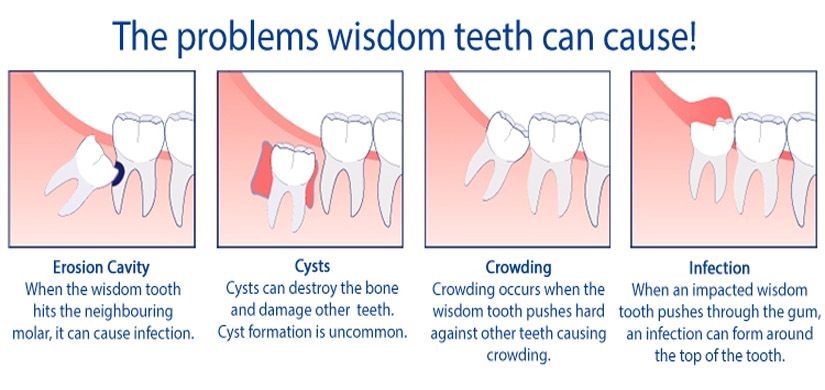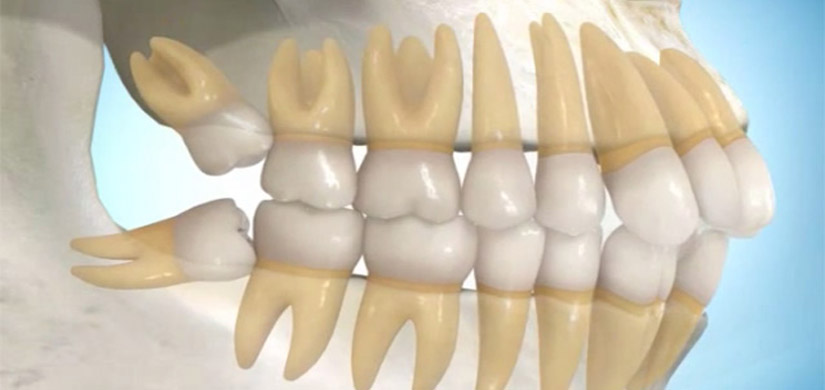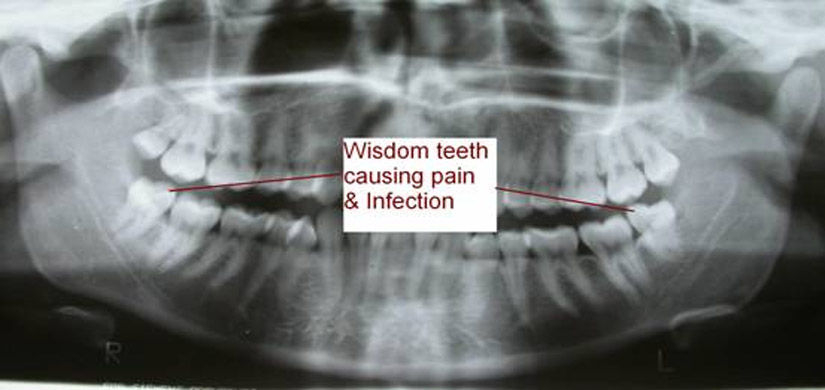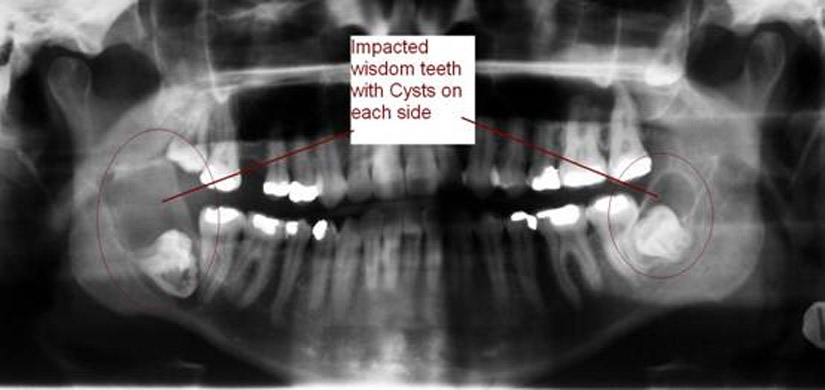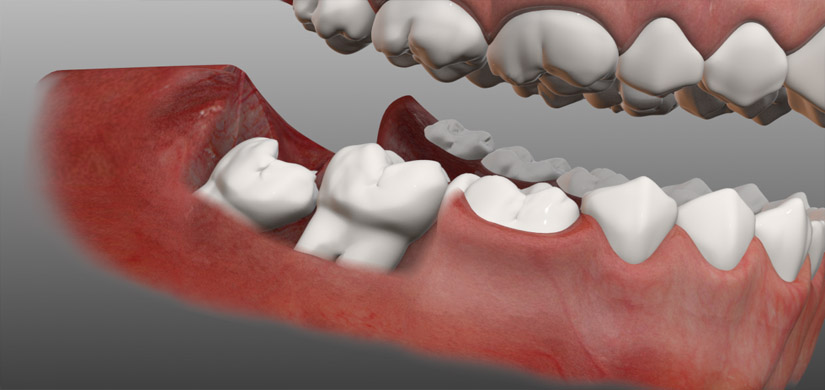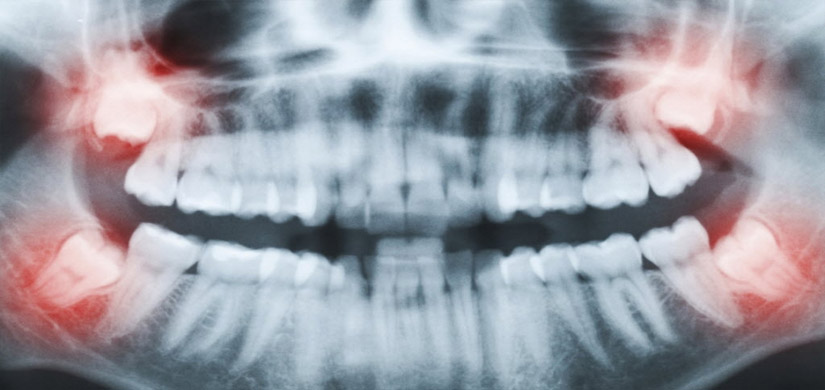This information is for patients who may need to have an operation to remove their impacted wisdom teeth. It explains why they may need to be removed, what is involved, any risks or complications that there may be.
Adults normally have 32 teeth and they erupt into the mouth according to a timetable. Wisdom teeth, also known as third molars, are the last teeth to erupt in the mouth. These generally erupt between the ages of 17 and 25, a time of life that has been called the “Age of Wisdom.” Normally there are 4 wisdom teeth, one in each side of the upper and lower jaw.
The problem is that wisdom teeth usually try to grow into a jaw that’s too small for them. A tooth becomes impacted when there is a lack of space in the jaw and its growth and eruption are prevented by overlying gum, bone or another tooth. A tooth may be partially impacted, which means a portion of it has broken through the gum, or totally impacted and unable to break through the gum at all. Impacted wisdom teeth can cause pain, swelling, infection or damage to the teeth next to them. If the gum around the wisdom tooth is swollen the jaw may become stiff and sore. Infection at the back of the mouth can cause bad breath and a bad taste. The surgical removal or extraction of a painful wisdom tooth can relieve problems like pain, infection and gum swelling. If a check up shows wisdom teeth may cause problems, dentists will probably recommend that these troublesome wisdom teeth be removed.

